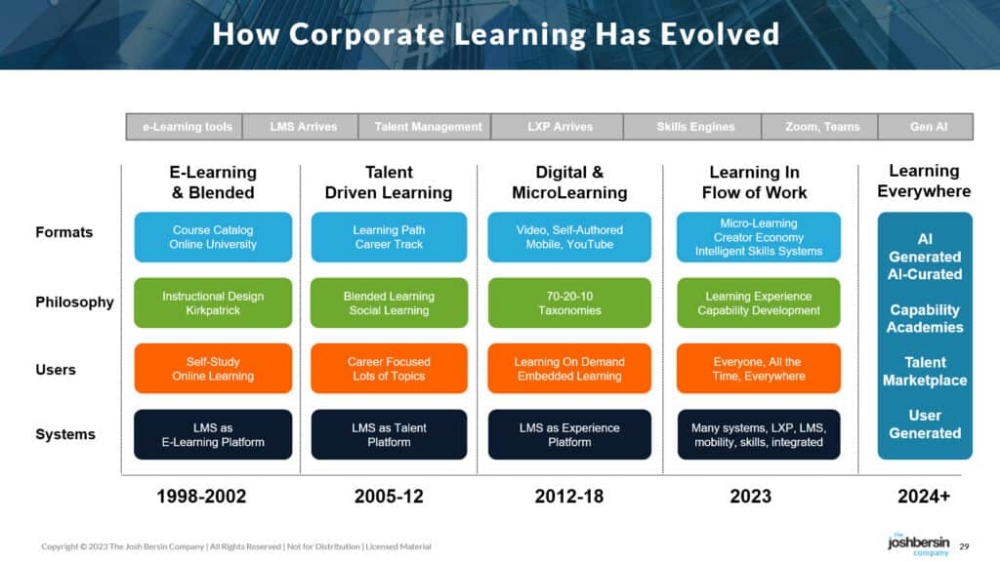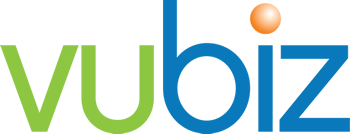 |
Written by Liz McDermott |
Utilizing AI's capabilities in training introduces a transformative approach to employee training. It provides a tailored learning experience focusing on areas where learners need additional support. Organizations can leverage AI to create training materials, personalized assessments, and role-play scenarios, ensuring each training session is as effective as possible.
AI (artificial intelligence) tools need a lot of written content because they learn by analyzing and understanding existing data. This data can be in the form of text, code, images, or videos. The more data AI tools have access to, the better they can learn and perform tasks.
By integrating AI in compliance training, teams can achieve remarkable efficiency and effectiveness, align with DOJ guidance, and significantly reduce the time and cost involved in training development. AI opens up new possibilities for using it in training, from automated best-fit learning paths to AI-driven learning management systems, providing a comprehensive solution for modern compliance challenges.
This article explores how businesses can use AI in training to help their team develop an artificial intelligence strategy.

Overcoming Key Challenges with AI
Organizations embarking on the journey of integrating AI into their training programs face several hurdles, yet these challenges also present unique opportunities for innovation and improvement:
Navigating Regulatory Landscapes:
- Stay informed about evolving AI regulations to ensure compliance.
- Partner with eLearning solution providers specializing in mandated training to navigate regulatory uncertainties effectively.
Ethical AI Utilization:
- Prioritize data privacy and mitigate machine learning (ML) model bias.
- Implement continuous training for AI and ML algorithms to maintain effectiveness and transparency.
Balancing Automation with Human Insight:
- Combine AI's efficiency with human experts' oversight to align with organizational compliance strategies.
- Leverage AI to automate monitoring and reporting, thus simplifying regulatory compliance.
By addressing these challenges head-on, organizations can harness AI's full potential to create dynamic and effective corporate training programs that meet compliance requirements and foster a culture of continuous learning and adaptation.
AI-Driven Personalized Learning Experiences
AI-driven personalized learning experiences are revolutionizing how training is delivered, making it more tailored and impactful for learners. The following AI-driven approaches make training more personalized and effective and align learning experiences with the evolving demands of the modern job market, ensuring learners are well-prepared for future challenges.
Interactive Learning with AI Chatbots
AI-driven chatbots offer real-time interactions, guiding employees through compliance training topics with personalized assistance, making the learning experience more exciting and valuable.
Adaptive Learning Pathways:
Training administrators can analyze learner data through AI-powered analytics to identify knowledge gaps and assess training effectiveness. Real-time training metrics can enable the creation of adaptive learning pathways, tailoring content and delivery to individual needs and enhancing learning outcomes.
Personalized Content Creation
AI tools can generate interactive quizzes, scenario-based simulations, and personalized learning materials. Training that caters to individuals' needs and learning styles ensures the knowledge provided is relevant and targeted, reducing the time employees spend on training. Organizations can leverage these AI capabilities by partnering with a solution provider with an extensive course catalog to create comprehensive training programs.

The Impact of AI on Content Creation and Management
AI can be pivotal in enhancing and streamlining training content creation and management processes. Here's a closer look at how AI impacts this domain:
Content Generation and Adaptation:
AI models like ChatGPT and Google Bard are revolutionizing the creation of training materials by providing ideas for training scenarios and training program plans and even generating entire scripts for training employee training videos. Tools like Synthesia and InVideo can transform these scripts into engaging videos with subtitles and visual elements, making the content more accessible and appealing.
Global Reach through Translation:
AI-driven language tools such as DeepL and Google Translate significantly improve the global accessibility of training content. These tools can efficiently translate training materials into multiple languages, ensuring that geographical boundaries do not confine learning. Furthermore, AI can automatically generate alternative text for images and transcribe audio materials, further enhancing accessibility.
Dynamic Content Management:
AI's ability to analyze vast amounts of data allows for identifying educational material gaps and suggesting areas for improvement. Organizations can provide training content that remains relevant and up-to-date with the latest research findings or curriculum changes. AI-infused tools can also assist in refreshing older content, providing training materials that are always current with cultural and societal norms.
By partnering with a compliance training solution provider that leverages AI, organizations can cover training topics in-depth, ensuring content is not only engaging and accessible but also tailored to meet the specific needs of learners.
Conclusion
Throughout this article, we've explored AI's transformative potential in compliance training, highlighting how personalized, AI-driven training experiences can significantly enhance learning outcomes. By harnessing the power of AI, organizations can leverage tailored assessment tools and role-playing scenarios, ensuring training meets compliance requirements and addresses each employee's unique needs and learning styles. Furthermore, navigating the challenges posed by regulatory landscapes and ethical considerations in AI utilization allows organizations to innovate and improve their training strategies, ultimately fostering a culture of continuous learning and adaptation.
The significance of AI in training extends beyond the immediate benefits of personalized learning experiences, impacting content creation and management with advanced tools for dynamic content adaptation and global accessibility. Partnering with an eLearning solution provider, such as Vubiz, allows organizations to cover training topics in-depth, ensuring that content is not only engaging and accessible but also up-to-date with the latest standards and best practices.
Learn more about Vubiz's online training programs powered by a comprehensive online training library to help enhance your organization's AI training capabilities. As we move forward, embracing AI in compliance training will streamline the development and delivery of employee training programs, helping your workforce prepare for the challenges of the modern job market and navigate the complexities of their roles with confidence and competence.
